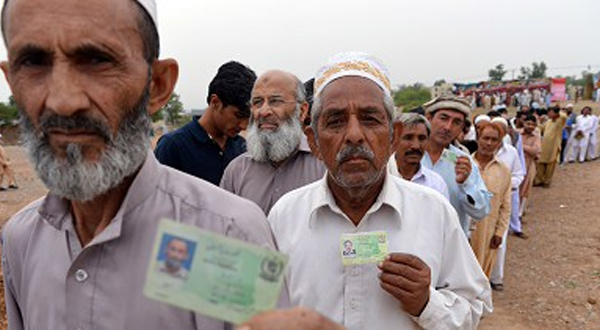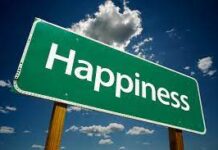Hamza Hassan
Information is power and insight can impact on public discourse.This way, perceptions can be changed by access to media. Different types of media are utilised globally to distribute knowledge and idealistically, free mass media is a tool of and signpost for democracy.
Freedom of expression is not only the core of a healthy media but also a fundamental human right and vital for a democratic structure. It stands for freedom of speech, the right to information and the representation of different opinions in a heterogeneous society.
In any culture of prevention, effective and democratic media are an essential part and indispensable for societies trying to make a transition towards peace and democracy.
Harry S. Truman once said “You can never get all the facts from just one newspaper, and unless you have all the facts, you cannot make proper judgements about what is going on ”This statement reflects the need for free access to unbiased information. Not giving people the possibility of political participation and not allowing them to express themselves freely is a significant cause of conflict. On the one hand free, independent and pluralistic media provide a platform for debate and different opinions. On the other hand, media can be misused for propaganda purposes, to incite hatred and spread rumours and therefore artificially create tensions.The transmission of ideas is also not limited to conventional media such as newspapers, TV or radio. Arguably, the traditional media takes primacy in this, however, new technologies, the internet and digital content should also be considered in this context .
Internal conflicts do not occur spontaneously but tend to have a history. Local media usually have a deeper understanding of the existing political structures, the participants of the conflict as well as the changes preceding the outbreak of violence. The media can therefore not only influence society before the conflict by recognising and properly addressing the issue but also afterwards. Unlike international media covering conflicts, local media are a recognized part of society with the ability to accelerate and magnify fears or reduce them.
One should not forget that journalism can play a role in escalating conflicts, which also demonstrates the potential for positive purposes. The media have the power to defuse tensions before they even reach a critical point and keep a critical eye on government, opposition and society. By supplying credible information and reaching a large audience, the media help in managing conflicts and promote democratic principles.
In the aftermath of a conflict, reconciliation and societal development can be encouraged as well.
A measure of peace-building can be enhanced peace journalism. Peace journalists try to uncover the causes behind a conflict and true goals of all participants while making sure to humanise all victims of the conflict. The journalists don’t try to exploit the loss and suffering but make sure that the reporting is balanced and also demonstrate how easily news can be manipulated. Part of the ethical guidelines for this kind of reporting is to bring out people that use peaceful measures and speak out against war and violence and document the suffering and loss on all sides. Possible solutions and trying to prevent further escalation of the conflict are at the centre of peace journalism as well.
A suggested framework used by peace-building media can employ different strategies such as (1) Conflict-sensitive and peace journalism; (2) Peace-promoting entertainment media; (3) Media regulation to prevent incitement of violence, but also (4) Peace-promoting citizen media.
Journalists do not shy away from difficult, sensitive or uncomfortable topics such as human rights abuses. In this context, journalists can be considered the helpers of all human rights defenders for they have committed themselves to ethical and moral standards in reporting as well as to addressing important topics in way that can be productive for everyone involved.
Assistance from public opinion is and always has to be the goal of any reporting since without reaching a broad audience that can take action, the effect of the media is limited at best. Therefore non-democratic governments try to harass and persecute journalists in order to keep them in line and prevent them from exposing misconduct and abuse of power. Increasingly this practice can be observed in democratic countries as well and is being heavily criticised.
It is noteworthy that despite the fact of democracy being the rule of a majority, a truly democratic framework also demands and ensures that those elected must be accountable. This includes protecting against gender discrimination, protecting the rights of minorities, protecting freedom of speech, and more importantly they do not have the right to justify any transgressions by endorsing new laws.
Media and journalism can be a great assistance in conflict management and peace building. However, the power they have is also limited, as they will never be able to eliminate armed conflicts altogether. The media can be a good tool in a healthy and functioning environment but more is needed than ethical and responsible reporting to ensure lasting peace and safety. The role of the media is twofold: on the one hand, the media report and reflect on pressing issues and can help to question established concepts and ideas. On the other hand, they can be used for propaganda purposes and instead of revealing truths, try to cover things up and by this curtail people’s freedom and right to information. Regardless, the potential of the media in conflict and post-conflict situations remains a net positive, and has been sadly underutilized to this point in time





